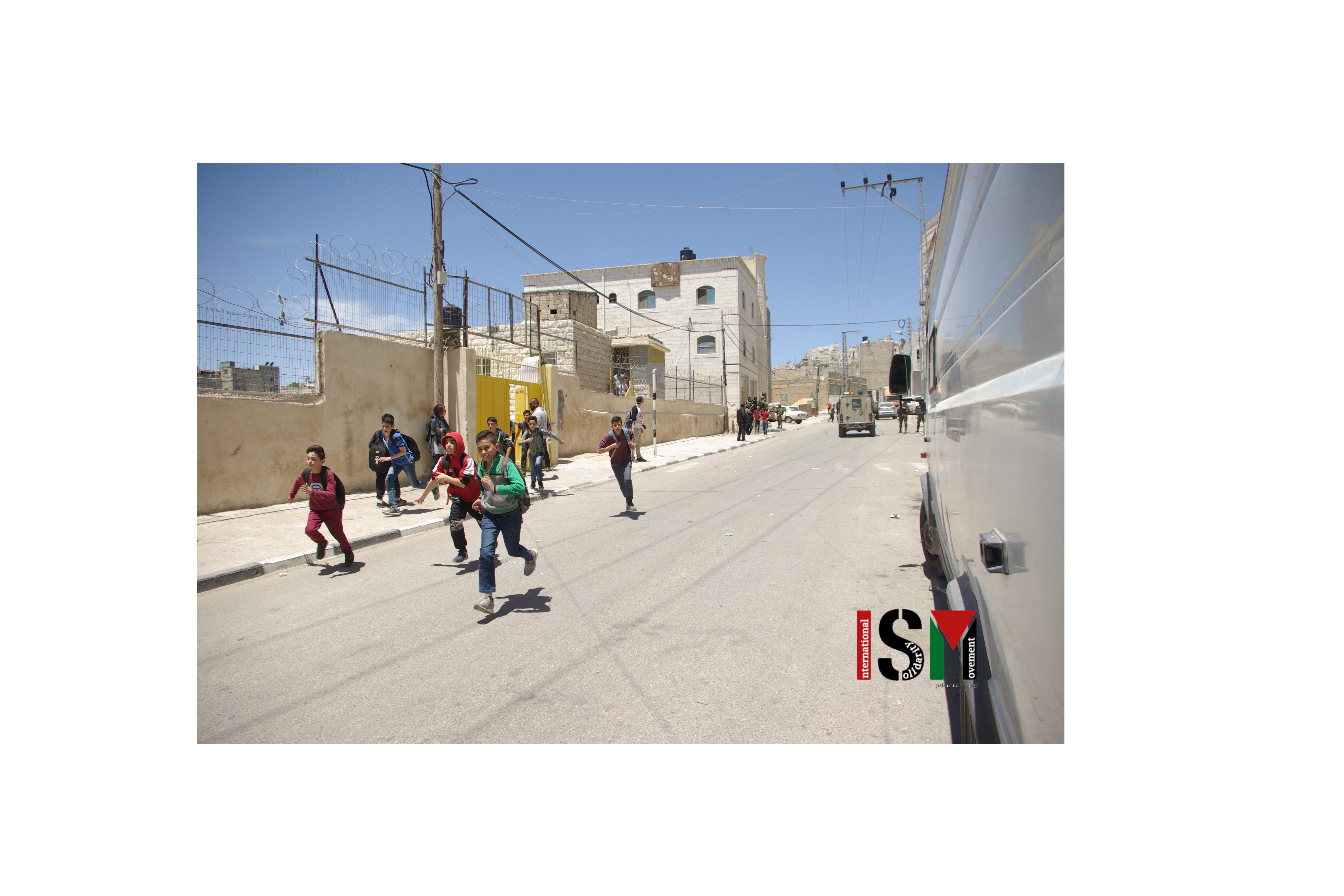Tag: Stun Grenades
-
A personal account of detention, racism and broken rules
May 8, 2019 | International Solidarity Movement, Al-Khalil team | Al-Khalil (Hebron), occupied Palestine The neighborhood of Salaymeh next to Salaymeh checkpoint (160) has been the center of tensions between Palestinians and the Israelis in the city of Al-Khalil (Hebron). This checkpoint cuts off an already poor and struggling neighborhood from the rest of the…
-
School Children bombarded with teargas by soldiers in Al-Khalil
April 14, 2019 | International Solidarity Movement, Al-Khalil team | Al-Khalil (Hebron), occupied Palestine Israeli occupation forces shoot huge amounts of tear gas at school children near Al-Salaymeh checkpoint in Al-Khalil. Soldiers further confiscate the car keys of every Palestinian driver in the area. Around 8am soldiers shot tear gas and stun grenades at school…
-
Soldiers invade Al-Khalil; fire live ammunition at protesters
April 5, 2019 | International Solidarity Movement, Al-Khalil team | Al-Khalil (Hebron), occupied Palestine Israeli occupation forces storm into Al-Khalil and fire live ammunition at protesters after bombarding the city with tear gas, stun grenades, and rubber-coated steel bullets. Around 1pm soldiers invaded Al-Khalil through checkpoint 56. The soldiers fired stun grenades at protesters. Immediately…



